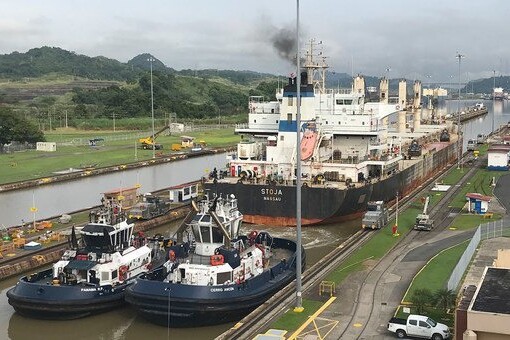Despite being “rich with human and natural resources and enormous untapped economic and social potential,” General Assembly President Abdulla Shahid told the high-level The Africa We Want dialogue that the continent “still faces challenges” in realizing the Sustainable Development Goals (SDGs).
Hard-won struggles
Africa has undergone a dramatic transformation since the end of the colonial era, with many countries struggling post-independence to secure socio-economic development, peace and security.
“Africa today is a region that has adopted and pursued a transformational agenda towards sustainable development, and is chartering a path towards prosperity, unity, peace, and integration,” said the senior UN official.
Noting its commitments throughout the New Partnership for Africa’s Development (NEPAD), Agenda 2063, and the SDGs, he said, “we are moving in the right direction, but we still need to do more”.
Challenges
Against the 2021 targets of Agenda 2063, Africa as a whole is only 51 per cent on track, according to a report issued in February.
While facing world challenges, such as climate change, COVID-19, rising fuel prices, and inequality, Africa has shown underlying vulnerabilities.
“Yet, progress remains possible,” Mr. Shahid affirmed, underscoring the importance of investing in people.
Ambition required
Describing Africa’s sustainable development as a “priority” for the UN and international community, he said collective action had often fallen short on delivery.
The Assembly President urged everyone to recommit to sustainable development on the continent, assess where action is lacking, foster progress, and fulfil existing commitments while generating new ones “that reflect our ever-changing world”.
“With resolve, continued commitment, perseverance and support from the international community and the UN system,” The Africa We Want could become a reality, he concluded.
Turn triple crises into an opportunity
Speaking on behalf of the Secretary-General, his deputy, Amina Mohammed confirmed that the UN shares the AU’s vision of a continent shaped by its own narrative, informed by its own citizens, and representing a dynamic force on the world stage.
However, the pandemic, climate change and the war in Ukraine have placed at risk previous development gains.
She outlined measures to tackle these challenges, maintaining that Africa’s goals are still within reach.
To get there however, mindsets must change and the triple crisis must be turned into an opportunity.

UN Photo/Mark Garten
Deputy Secretary-General Amina Mohammed addresses the High-level Dialogue on
Silver lining
Collen Kelapile, President of the Economic and Social Council (ECOSOC) and co-organizer of the session, called it “both timely and relevant”.
He advocated for “collective action and international solidarity to address the looming threat of food insecurity and famine…[and] the impacts of the Ukraine war on energy and the economy”.
“The silver lining here is that there is an unprecedented opportunity for Africa to step up to these challenges, speed up its industrialization and economic diversification, and integrate itself further upstream in global supply chains through increased value addition at source,” spelled out the ECOSOC chief.
Support the agendas
For the first time in a generation, Africa has displayed the “collective decisive measures and leadership” required, to take its destiny in its own hands, he continued.
“As we are drawing nearer to the end of Agenda 2063’s First 10-Year Implementation Plan 2013-2023, this is the right moment to have this forward-looking dialogue”.
The “mutually reinforcing and complementary” agendas bear testimony to the new narrative on Africa’s development
“I urge African Member States to accelerate implementation of both agendas, and to continue to show leadership, political will and vision as we move towards the target deadline of 2030 and beyond,” said Mr. Kelapile.
Financing Africa’s Development
Noting that external financing, such as Official Development Assistance (ODA), has “consistently fallen short of commitments,” he described domestic resources as “key” to development financing.
The question is how to “create and preserve the policy space needed” to reform and transform Africa’s “still untapped potential”.
“As African policymakers, we have a critical role to play in implementing and advocating for reforms that will strengthen Africa’s institutions and governance mechanisms, which will in turn improve its tax and revenue collection capacity and rationalize the expenditures in a transparent and accountable way”.
Vulnerable to climate change
He pointed out that while Africa has only contributed around 3.8 per cent to global carbon emissions, it is extremely vulnerable to global warming manifested through extreme weather, heatwaves, droughts, crop failures and hunger.
It also leads to further pressures in accessing resources, which result in vicious cycles of conflict on the continent and negative spill over to the rest of the world.
Dubbed the “African COP,” the next UN climate conference, COP27, set for Egypt in November is “a critical opportunity to address this imbalance,” said Mr. Kelapile.
It will provide opportunities to invest in renewable energy, sustainable agriculture, efficient low-carbon transportation, digital transformations and climate resilient crops to break Africa’s dependence on food imports.
Empowering women and youth
Noting that by investing in human capital, every African can “earn a fair income, live a healthy life, and contribute to society,” he encouraged the participants to “harness its demographic dividend” and empower the region’s youth and women.
Investing in women and youth will “put the continent on track to realize the 2030 Agenda and its SDGs, as well as the aspirations and targets espoused in Agenda 2063,” said Mr. Kelapile.
In closing, he welcomed initiatives of the AU, UN, international and regional financial institutions and others to scale up their support for transformative change in Africa.




